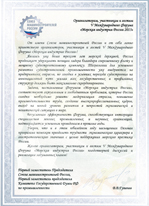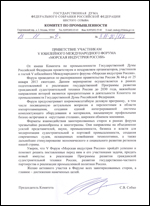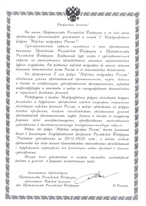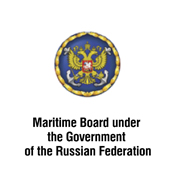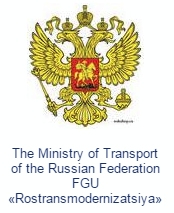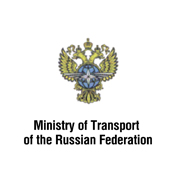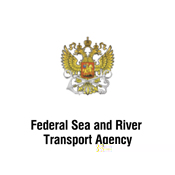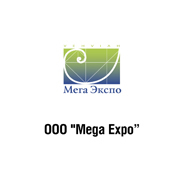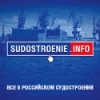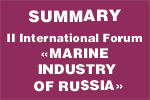“Marine Industry of Russia”
Exhibition Hall,
17-19 May 2016
Time left till opening of the Forum
May 07, 2015
Greetings from the Ministry of Industry and Trade of the Russian Federation
January 28, 2015
The Forum organizers received the greeting from Gutenev V.V., the First Deputy Chairman of the Russian Engineering Union.
January 15, 2015
The Government of the Russian Federation addressed a welcome letter to the V International Forum Marine Industry of Russia.
Freight – Brief Overview
Since the cost of transportation determines the cost of goods, when entering international product markets, the issue of goods delivery needs to be solved regardless of whether the company is an importer or exporter.

Photo by
Sea freight is the optimum way of haulage of goods ensuring delivery at the earliest possible date with the maximum degree of reliability at minimum cost. Freight is a payment for cargo transportation by water. Freight also means provision of a whole vessel or its part for cargo transportation or performance of other works throughout one or several cruises. For transportation of most part of cargoes by water, containers are used at most; they can be standard, refrigerator, and containers without walls. Since all the goods are classified by price lines, sea freight rate mostly depends on the category of the cargo being transported.
As of today in the world there are about 27 thousand vessels capable of travelling by ocean. Their total deadweight varies from 1000 to 270000 tons, total tonnage is over 190 mln. gross registered tons and freight capacity 300 mln. tons of cargo.
Drawing up of the Russian International Ship Register
Under strict conditions of market economy, Russian shipping companies go behind their competitors at the world transport market, so creation of equal competitive conditions and assurance of constitutional rights of Russian ship owners and seamen should be major priorities of the government.
The lion’s share of the cost of transportation services rendered refers to taxes, charges, duties and other deductions, which places Russian shipping companies in a difficult position. In order to register a vessel purchased abroad, domestic shipping companies have to pay out in a lump sum tax and custom levies amounting 24.2% of the vessel’s cost. That is the reason why most part of vessels ordered for Russian shipping companies is built abroad as an export order via various offshore companies. Thus, over 90% of vessels built for Russian ship owners sail under foreign flags.
To solve these problems, many leading maritime powers started drawing up international ship registers which represent effective means of government assistance to domestic shipping companies ensuring competition with “convenient” flags.
Russia also draws up such register. Taxation of ships included provides for payment of primary state registration fee and annual registration renewal fee. The amount of duties depends on the displacement of the ship being registered.
Analysis of International Freight Market
When discussing freight market, we mean the mixture of all freight services rendered in the global waters. In terms of geographical position, the freight market is divided into nine zones. Each zone has its own peculiarities – region development level, traffic density and volume, number of companies rendering transportation services, routes, specific nature of goods being transported; type of ships prevailing in a definite market zone is defined by these parameters.
Besides, there are dry and liquid cargo freight markets. The first includes freight of dry cargo vessels transporting all kinds of goods except bulk and including aliments. The second includes freight of tankers and other vessels transporting liquids.
Depending on the level of availability, open and closed freight markets may be distinguished.
According to experts, the world market expects sharp decrease in freight costs in 2010, since a lot of vessels now standing at dockyards will be brought into operation. Mainly this concerns Capesize vessels with deadweight over 80 thousand tons.
As to Handysize vessels with deadweight up to 35 thousand tons, nobody expects significant changes in this area, since most investments are allocated into building large vessels which is more reasonable in terms of economy.
© Marine Industry of Russia, 2009-2010. All rights reserved.
By: “Ideological buiseness-projects”
Design by Valentina Ivanova.
